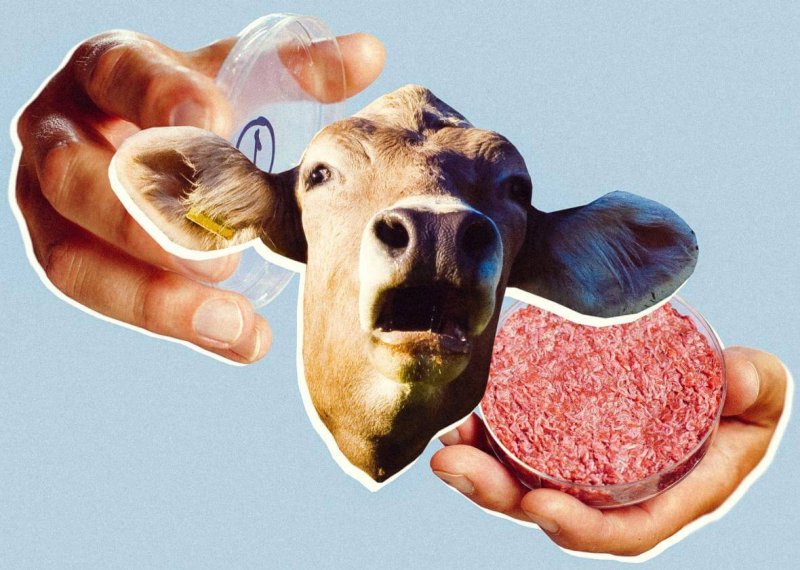Lab meat—flesh grown in massive tanks instead of in the bodies of sentient animals—offers the promise of having our steak and eating it guilt-free, too.
No vast amounts of water-polluting chemicals to grow feed crops; no low-paid, oft-injured slaughterhouse workers; no climate-warming gases from cow burps or manure lagoons, and no billions of animals slaughtered each year to satisfy our carnivory.
Yet several obstacles hold back a new era of widely available animal-free burgers, nuggets, and carnitas. The biggest involves something much less appetizing than chicken dumplings: the blood of unborn cow fetuses, extracted from their mothers after slaughter, [called fetal bovine serum].
…
The first is expense. FBS sells for upward of $1,000 per liter—a major reason why, to break even on expenses, companies would have to sell their cultured meat for about $200,000 per pound.
…
The other big problem is optics: You can’t market your product as “slaughter-free,” let alone vegan, when you used a slaughterhouse byproduct to grow it… As a result, cultivated-meat companies are scrambling to find FSB substitutes. Such a “serum-free” growth medium exists, reports the Good Food Institute, a think tank that supports conventional-meat replacements. Trouble is, it currently costs nearly $400 per liter—still way too high to be commercially competitive.































